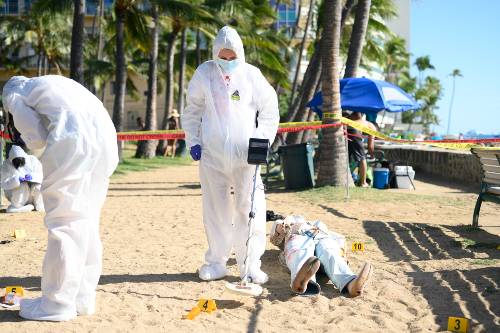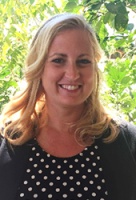Elena Chen wants to help people walk again

She vividly remembers the moment when she knew that she wanted to pursue her higher education in prosthetics. While a sophomore volunteer at Shriners Children’s Hawaii, Elena Chen ’21 witnessed something less than a miracle, as she describes it.
“I saw a young kid get a second chance to run again,” Chen recalls. “After putting on a leg prosthetic, he got up and I’ll never forget the smile on his face; it was awesome to see.”
Now attending the International Institute of Orthotics and Prosthetics in Tampa, Fla., Chen is working towards her master’s degree in Orthotics and Prosthetics (O&P), a specialized health care profession that combines technical and clinical skills to care for patients with neuromuscular and musculoskeletal disorders and/or patients who have a partial or total absence of a limb.
“I graduated with my bachelor’s in Forensic Science, which I really wanted a career in,” Chen says. “But when I learned about the field of prosthetics and orthotics, it personally connected with me because I know someone whose leg was amputated because of cancer.”
Prostheses (artificial legs and hands) and orthoses (braces and splints) enable people with physical impairments or functional limitations to live healthy, productive, independent and dignified lives, and to participate in education, the labor market and social life. The use of prostheses or orthoses can reduce the need for formal health care, support services, long-term care and caregivers.
“Prostheses and orthoses give people a second chance to perform activities that they once loved, like running, for instance,” Chen says. “When you lose your leg, you can quickly take a downward spiral into deep depression, which causes a persistent feeling of sadness and disinterest.”
Without access to prostheses or orthoses, people who need them are often excluded, isolated and locked into poverty, which increases the burden of morbidity and disability. The Convention on the Rights of Persons with Disabilities (CRPD) states that Member States—to which the U.S. belongs—are responsible for taking effective measures to ensure personal mobility for the greatest possible independence of people with disabilities.

They also have a corresponding responsibility to promote and ensure the availability of and access to mobility aids, devices and assistive technologies, including prostheses and orthoses.
As of June 2023, the CRPD has been ratified by 164 signatories and 187 parties, 186 states and the European Union. Members are thus obliged to ensure access to affordable, high-quality assistive products, including prostheses and orthoses. However, the World Health Organization estimates that, today, only 1 in 10 people in need has access to assistive products, including prostheses and orthoses.
Chen wants to change this.
From 2019 to 2020, Chen shadowed her mentor, Cameron Lehrer, an American Board Certified and Licensed Prosthetist and Orthotist, and owner of Prosthetics & Orthotic Associates of Hawaii, Inc, which prides itself in its creative and innovative approach to patient-centered care.
“I was a student apprentice responsible for taking casts and measurements,” Chen explains. “I was making prosthetic sockets, and really building my skills.”
Chen, though, just doesn’t want to learn about prosthetics and orthotics, she also wants to be able to translate the technical medical terms in Mandarin. This month, she received her X2 student visa and started her clinical rotations in Chongqing, China.
“I’m so excited,” said Chen, after learning about the approval of her visa. “Not only will I gain more experience in making prosthetic limbs, but I’ll also learn more Mandarin. Eventually, I want to be able to utilize my Chinese language skills in Hawaii to help people with their language barrier in a hospital setting, which is a scary experience.”
Due to return to Hawaii in December to visit her parents, mom Shanly Wu and dad Tommy Chen, the aspiring 24-year-old prosthetist and orthoptist is grateful for the experiential opportunities that Chaminade exposed her to while an undergraduate student, and taught her to be open to new ideas and to want to learn everything she can.
“Outside of classes, I did volunteer work and joined various student clubs,” Chen says. “I also completed the one-year Hogan Entrepreneurial Program, and I was the only one who went to Shanghai, China to study abroad. What I appreciate most is that Chaminade taught me the importance of community service and giving back, which is what I want to do when I get my board-certified license in ’24 or ’25.”














